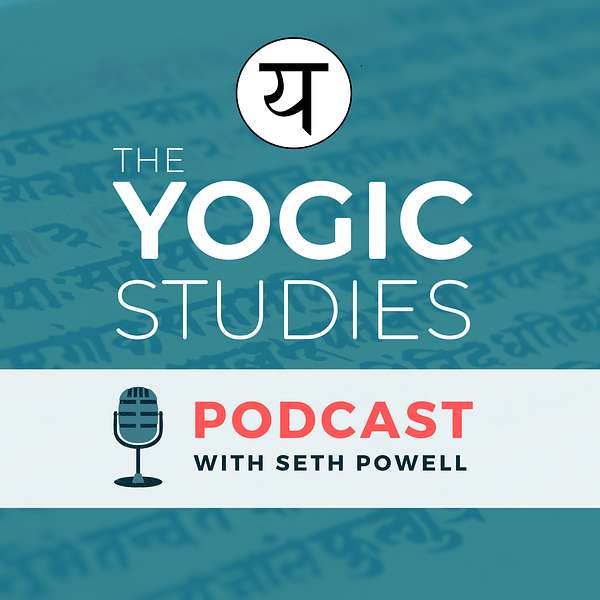
The Yogic Studies Podcast
In-depth explorations into the traditions of Yoga, Sanskrit, Indian Philosophy, and South Asian Religions. Featuring candid conversations and interviews with scholars and educators from around the world. Hosted by Seth Powell.
The Yogic Studies Podcast
44. Kate Hartmann | Pilgrimage and Buddhism
In this episode we welcome back Kate Hartmann, former director of Buddhist Studies Online, to discuss all things pilgrimage and Buddhism. We discuss how Kate first got into pilgrimage studies as a grad student at Harvard, whether pilgrimage is a universal concept across cultures, and question what separates a pilgrim from a tourist? We then turn to the early history of the Buddhist pilgrimage tradition in India, going back to accounts of the words of the Buddha himself to Ānanda and his other close disciples. We discuss some of the major Buddhist pilgrimage sites in India and other parts of Asia, what a Buddhist pilgrim sees and experiences, and question the age-old adage of whether a Buddhist pilgrimage is more about the journey or the destination. Leaning into Kate's own research, we look at the Tibetan pilgrimage tradition, and discuss various types of Tibetan literature on pilgrimage--from guides and handbooks to the diaries of pilgrims. We conclude by previewing Kate's upcoming online course, BS 110 | Buddhism and Pilgrimage.
Speaker Bio
Dr. Kate Hartmann is an Assistant Professor of Religious Studies in the Department of Philosophy and Religious Studies at the University of Wyoming. Hartmann’s primary research focus is on the intellectual history of pilgrimage in Tibet, but she also researches Buddhist ethics, as well as Buddhist approaches to addiction and recovery. Her book Making the Invisible Real: Practices of Seeing in Tibetan Pilgrimage Literature is forthcoming from Oxford University Press.
She received her PhD in Buddhist Studies from Harvard University in 2020, an MA in the History of Religions from the University of Chicago in 2013, and a BA in Religious Studies from the University of Virginia in 2011.
As part of her training, Hartmann has spent extended periods of time living in Asia. She has spent summers backpacking across India, living with Tibetan Buddhist nuns in Ladakh, in Dharamsala working in the Library of Tibetan Works and Archives, studying at the Dunhuang caves in China, traveling to Lhasa, and conducting research around Boudha in Nepal. She speaks modern colloquial Tibetan and conducts research in Classical Tibetan and Sanskrit.
As a scholar and teacher, Hartmann has long been interested in the practices religions develop to transform people's experience of the world. She aims to help students understand Buddhist traditions through deep engagement with primary sources, a process that helps illuminate central Buddhist concepts while embracing the internal diversity of Buddhist traditions. She balances an irreverent and down-to-earth style with deep respect for Buddhist texts, traditions, and practitioners. She teaches both online and in-person courses on the history and philosophy of Buddhism and other Asian religions, and has presented at lectures and conferences around the country.
Links